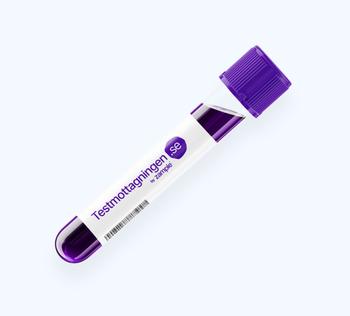What are neutrophil granulocytes?
Neutrophil granulocytes are a type of white blood cells that are important for the body's defense against infections. They are known to fight bacterial infections by eating the bacteria. Neutrophil granulocytes are the most common type of white blood cells in the human body and their levels in the blood can increase during infections or inflammation.
Why analyze neutrophil granulocytes?
Neutrophil granulocytes are analyzed to examine the body's defenses against infections and to identify any problems with the immune system.
What can a low value of neutrophil granulocytes be due to?
Low levels of neutrophils may indicate a serious infection or other disease that affects the body's ability to produce white blood cells.
Low neutrophil values can also be caused by certain medicines, vitamin deficiency (mainly vitamin B12 and folic acid) or excessive alcohol consumption.
What can a high value of neutrophil granulocytes be due to?
Increased levels of neutrophil granulocytes can indicate an ongoing infection or inflammation in the body and can also be seen during, for example, physical exertion and cortisone treatment.
Differential count of B cellsDifferential count is a medical examination that aims to determine the proportion of different types of white blood cells (leukocytes) in a blood sample. The differential count is an important part of a complete blood count and can provide important information about the general state of the immune system and any problems or diseases that may be related to white blood cells.
Differential counting can be done both by mechanical classification (most common) and by examining the blood under the microscope where you count different types of white blood cells, neutrophils, lymphocytes, monocytes, basophils and eosinophils. Each type of white blood cell has its own function and a change in the level of these cells can provide information about what is happening in the body.































